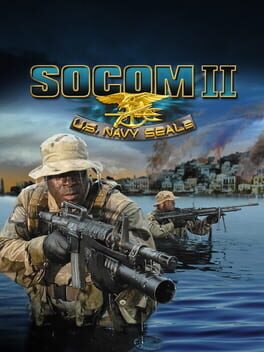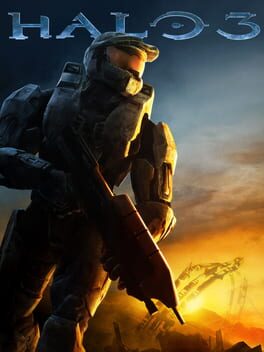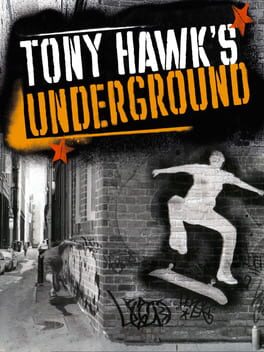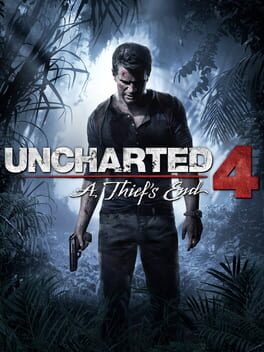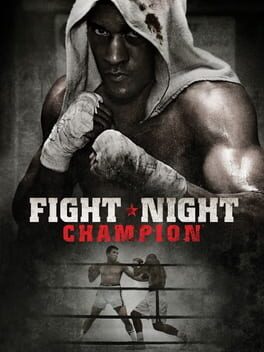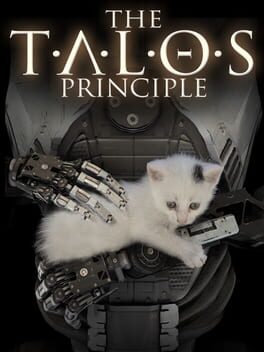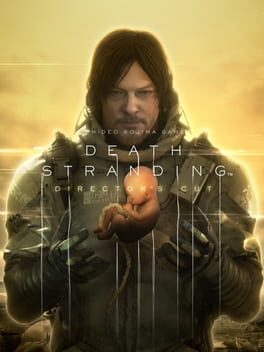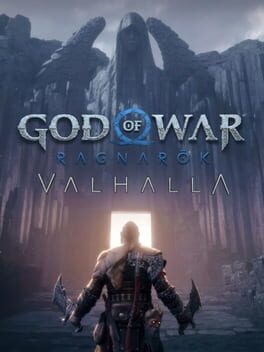MIKEYMO
Bio
A log of games I will certainly never finish.
A log of games I will certainly never finish.
Badges

Best Friends
Become mutual friends with at least 3 others

Noticed
Gained 3+ followers
Favorite Games
006
Total Games Played
000
Played in 2024
040
Games Backloggd
Recently Reviewed See More
LOADING LIBRARY SESSION....
Any seasoned player of video games will agree that new experiences just keep getting harder to find and developers understand this. This game, released in 2014, is a breath of fresh air in an era where developers often tap into our constant need for stimulation. While some games keep players hooked with battle passes and quick 20 min XP boosts, “The Talos Principle” dangles a different carrot: our innate curiosity and the human drive to make sense of the unknown.
If this sounds somewhat esoteric, don’t be worried. “The Talos Principle” is a straightforward first-person puzzle-adventure akin to 2007’s “Portal”. You play as an android entering the “Garden” of a god-like voice, handed a few tools and a series of puzzles to solve for the ultimate prize—eternal life. The
structure is simple; enter puzzle rooms, unlock the coveted “sigil” prize, repeat.
The game skillfully introduces its puzzle-solving tools and methodology, preventing prolonged frustration for players of all skill levels. Think of the initial stages, World A, as an easy New York Times “Monday” crossword, progressing to the later stages, World C, with a moderate “Wednesday” challenge where each challenge builds upon established foundations. Despite its accessibility, the exceptional puzzle design consistently leaves players feeling one step short, like they are missing one item, creating immense satisfaction when conquering challenges without that elusive item.
For those unfamiliar, let’s delve into a simple example. Each puzzle has a title, often self-referential or hinting. Take “Don’t Cross The Streams,” for instance. Armed with two lasers (think of keys, red and blue) and two receptacles (think of keyholes, red and blue), you quickly learn you can’t cross the (laser) streams. Move them around so the lasers don’t cross—solved! In mere seconds, you gain knowledge to carry with you throughout
the game.
--
“Every human society in recorded history has had games! We don’t just solve problems out of necessity; we do it for fun, even as adults! Leave a human being alone with a knotted rope, and they will unravel it. Leave a human being alone with blocks, and they will build something. Games are part of what makes us human. We see the world as a mystery, a puzzle. We’ve always been a species of problem solvers.”
- Alexandra Drennan, The Talos Principle
--
HUMAN CURIOSITY
As you navigate through worlds, solving fun puzzles and collecting sigils, you might be wondering how this mechanic of human curiosity and our attraction to the unknown fits into everything. Amid three hub worlds also stands a giant monstrosity of a tower, tempting you with its open door and hazy apex. The god-like voice warns against ascending it, claiming it’ll kill you. Meanwhile, a rogue AI pops up, challenging your beliefs and making that tower suddenly the most enticing place to be.
The game thrives on our skepticism and our inclination to question orders. Despite the god-like voice’s guidance, we have the free will to bend rules and indulge our curiosity. It’s this rule-bending that propels both the story and gameplay forward.
At some point, you’ll sport a self-satisfied grin, having discovered how to bend the rules, sneak objects out of puzzle rooms, or send lasers unbelievable distances you didn’t think were possible. Did you just break the game’s boundaries? Absolutely! Did other players discover this? The game drip-feeds new twists, making each discovery feel special.
You’re not just a lab rat solving puzzles; you’re an android with human sensibilities realizing anything goes in this world. If routing a laser from one puzzle room to another eases your journey, go for it! Bend the rules whenever you can! Perhaps other players weren’t as inquisitive but this game makes it important to feel special with everything you do.
As the game unfolds, you’ll find yourself questioning whether your discoveries were serendipitous or carefully planned by the developers. Your encounters with various audio logs, where a scientist contemplates the essence of humanity, adds an extra layer to the narrative making you question the God-voice’s motives. Why would a God allow this android to digest both broad philosophical ponderings and his own strict creationist guidelines within the same world of his creation? “The Talos Principle” excels in nudging you to formulate your own perspective on these profound matters. This harmonious flow between philosophical ponderings and tranquil puzzle gameplay (helped by a fantastic musical composition) deepens the immersive experience, leaving you pondering not just the puzzles but the very fabric of the game’s reality.
--
PLAYFUL
While the structure of this story is a clear and overt nod to the Garden of Eden, “The Talos Principle” acknowledges our awareness and constantly challenges us to form our own perspective on the truth of our creation
and purpose. Your answers to questions and the order in which you complete the game influence the endings. There may be concerns about an ambiguous finale in such a theological and philosophical game, but rest
assured; the main ending is definitive, clear, and extremely satisfying.
Although “The Talos Principle” could stand on its own with fun and challenging puzzles, it’s the classic story and the pursuit of truth that keeps you engaged in the long run. On a personal level, it has left me with a really warm and calming feeling on the inside. As corny as it sounds to say, this game made me proud to be a human with all of our complications, contradictions, playfulness and stubbornness. It’s a unique and fascinating gameplay experience that will change your perspective on games while touching you on a human level and it deserves to be acknowledged among the greats.
Any seasoned player of video games will agree that new experiences just keep getting harder to find and developers understand this. This game, released in 2014, is a breath of fresh air in an era where developers often tap into our constant need for stimulation. While some games keep players hooked with battle passes and quick 20 min XP boosts, “The Talos Principle” dangles a different carrot: our innate curiosity and the human drive to make sense of the unknown.
If this sounds somewhat esoteric, don’t be worried. “The Talos Principle” is a straightforward first-person puzzle-adventure akin to 2007’s “Portal”. You play as an android entering the “Garden” of a god-like voice, handed a few tools and a series of puzzles to solve for the ultimate prize—eternal life. The
structure is simple; enter puzzle rooms, unlock the coveted “sigil” prize, repeat.
The game skillfully introduces its puzzle-solving tools and methodology, preventing prolonged frustration for players of all skill levels. Think of the initial stages, World A, as an easy New York Times “Monday” crossword, progressing to the later stages, World C, with a moderate “Wednesday” challenge where each challenge builds upon established foundations. Despite its accessibility, the exceptional puzzle design consistently leaves players feeling one step short, like they are missing one item, creating immense satisfaction when conquering challenges without that elusive item.
For those unfamiliar, let’s delve into a simple example. Each puzzle has a title, often self-referential or hinting. Take “Don’t Cross The Streams,” for instance. Armed with two lasers (think of keys, red and blue) and two receptacles (think of keyholes, red and blue), you quickly learn you can’t cross the (laser) streams. Move them around so the lasers don’t cross—solved! In mere seconds, you gain knowledge to carry with you throughout
the game.
--
“Every human society in recorded history has had games! We don’t just solve problems out of necessity; we do it for fun, even as adults! Leave a human being alone with a knotted rope, and they will unravel it. Leave a human being alone with blocks, and they will build something. Games are part of what makes us human. We see the world as a mystery, a puzzle. We’ve always been a species of problem solvers.”
- Alexandra Drennan, The Talos Principle
--
HUMAN CURIOSITY
As you navigate through worlds, solving fun puzzles and collecting sigils, you might be wondering how this mechanic of human curiosity and our attraction to the unknown fits into everything. Amid three hub worlds also stands a giant monstrosity of a tower, tempting you with its open door and hazy apex. The god-like voice warns against ascending it, claiming it’ll kill you. Meanwhile, a rogue AI pops up, challenging your beliefs and making that tower suddenly the most enticing place to be.
The game thrives on our skepticism and our inclination to question orders. Despite the god-like voice’s guidance, we have the free will to bend rules and indulge our curiosity. It’s this rule-bending that propels both the story and gameplay forward.
At some point, you’ll sport a self-satisfied grin, having discovered how to bend the rules, sneak objects out of puzzle rooms, or send lasers unbelievable distances you didn’t think were possible. Did you just break the game’s boundaries? Absolutely! Did other players discover this? The game drip-feeds new twists, making each discovery feel special.
You’re not just a lab rat solving puzzles; you’re an android with human sensibilities realizing anything goes in this world. If routing a laser from one puzzle room to another eases your journey, go for it! Bend the rules whenever you can! Perhaps other players weren’t as inquisitive but this game makes it important to feel special with everything you do.
As the game unfolds, you’ll find yourself questioning whether your discoveries were serendipitous or carefully planned by the developers. Your encounters with various audio logs, where a scientist contemplates the essence of humanity, adds an extra layer to the narrative making you question the God-voice’s motives. Why would a God allow this android to digest both broad philosophical ponderings and his own strict creationist guidelines within the same world of his creation? “The Talos Principle” excels in nudging you to formulate your own perspective on these profound matters. This harmonious flow between philosophical ponderings and tranquil puzzle gameplay (helped by a fantastic musical composition) deepens the immersive experience, leaving you pondering not just the puzzles but the very fabric of the game’s reality.
--
PLAYFUL
While the structure of this story is a clear and overt nod to the Garden of Eden, “The Talos Principle” acknowledges our awareness and constantly challenges us to form our own perspective on the truth of our creation
and purpose. Your answers to questions and the order in which you complete the game influence the endings. There may be concerns about an ambiguous finale in such a theological and philosophical game, but rest
assured; the main ending is definitive, clear, and extremely satisfying.
Although “The Talos Principle” could stand on its own with fun and challenging puzzles, it’s the classic story and the pursuit of truth that keeps you engaged in the long run. On a personal level, it has left me with a really warm and calming feeling on the inside. As corny as it sounds to say, this game made me proud to be a human with all of our complications, contradictions, playfulness and stubbornness. It’s a unique and fascinating gameplay experience that will change your perspective on games while touching you on a human level and it deserves to be acknowledged among the greats.
This review contains spoilers
[Note - I'm reflecting on this game in context of it being entirely free]
Valhalla is an awesome free add-on, introducing a Rogue-like mode to an already fun combat system. God of War keeps trimming the fat with every game, and Valhalla takes it further with streamlined upgrades – a few options, quick choices, no overthinking. An action-packed action game. No time to relax!
The Rogue-like loop is really simple: enter portals, fight in quasi-recycled combat areas, get an upgrade, enter new portal, repeat. It's fine but it's not up to par with other Rogue-likes. Loops start slow and easy and by the time it gets interesting with some bespoke combat scenarios, the loop ends. It's meant to be tight and quick. I get it but I wish it was a bit more interesting.
The story is the real value here. You will very quickly discover on your first run that this game is throwing you back all the way to God of War 1 from 2005! Although an obvious budgetary decision, I have to mention that the motion graphic cutscenes were a nice nod to the past.
Someone with a greater handle on writing than I will articulate this far better, but I'll make an attempt to explain Valhalla's sort of metatextual or postmodernist commentary on itself. Stripped down to it's essence, this new God of War series has an underlaying commentary on the games industry as well as gamers themselves growing up and changing as people—doing better as Kratos would say. It also speaks to Kratos' evolution as a character in the series and in gaming discourse. Valhalla is Sony Santa Monica putting a bow on this self referential series. A mic-drop moment at the end hits very hard: ||"You have always been more than what others saw. You ARE more than that."|| Fan service is through the roof, making it a sweet epilogue to the entire series.
A few gripes - they're way too heavy-handed on the self-reflection. ||Tyr|| and Mimir are like therapists, and the ending gets almost too soft for Kratos with some "power of friendship" feel-good dialogue not sitting well with me. I was waiting for Mimir to hug me and say "Its not your fault. It's not your fault." 😆 Despite that, it's an essential closure, filling gaps and wrapping up Kratos' journey. Play it (4-5 hrs)!
Valhalla is an awesome free add-on, introducing a Rogue-like mode to an already fun combat system. God of War keeps trimming the fat with every game, and Valhalla takes it further with streamlined upgrades – a few options, quick choices, no overthinking. An action-packed action game. No time to relax!
The Rogue-like loop is really simple: enter portals, fight in quasi-recycled combat areas, get an upgrade, enter new portal, repeat. It's fine but it's not up to par with other Rogue-likes. Loops start slow and easy and by the time it gets interesting with some bespoke combat scenarios, the loop ends. It's meant to be tight and quick. I get it but I wish it was a bit more interesting.
The story is the real value here. You will very quickly discover on your first run that this game is throwing you back all the way to God of War 1 from 2005! Although an obvious budgetary decision, I have to mention that the motion graphic cutscenes were a nice nod to the past.
Someone with a greater handle on writing than I will articulate this far better, but I'll make an attempt to explain Valhalla's sort of metatextual or postmodernist commentary on itself. Stripped down to it's essence, this new God of War series has an underlaying commentary on the games industry as well as gamers themselves growing up and changing as people—doing better as Kratos would say. It also speaks to Kratos' evolution as a character in the series and in gaming discourse. Valhalla is Sony Santa Monica putting a bow on this self referential series. A mic-drop moment at the end hits very hard: ||"You have always been more than what others saw. You ARE more than that."|| Fan service is through the roof, making it a sweet epilogue to the entire series.
A few gripes - they're way too heavy-handed on the self-reflection. ||Tyr|| and Mimir are like therapists, and the ending gets almost too soft for Kratos with some "power of friendship" feel-good dialogue not sitting well with me. I was waiting for Mimir to hug me and say "Its not your fault. It's not your fault." 😆 Despite that, it's an essential closure, filling gaps and wrapping up Kratos' journey. Play it (4-5 hrs)!
